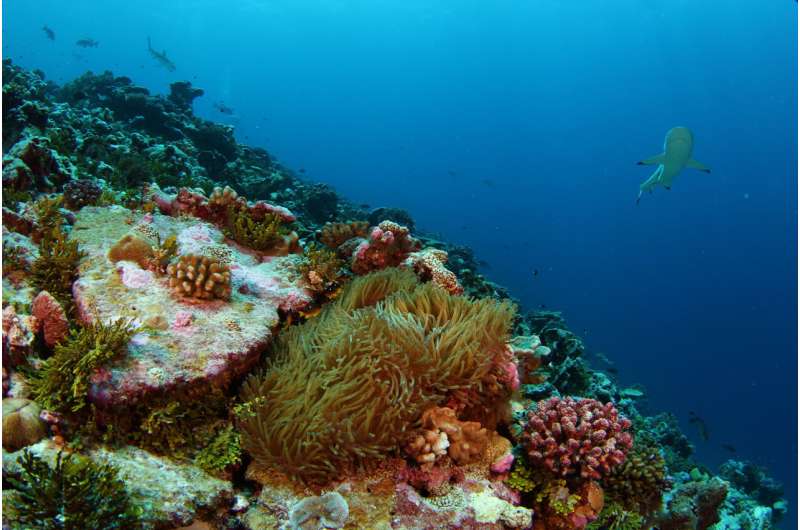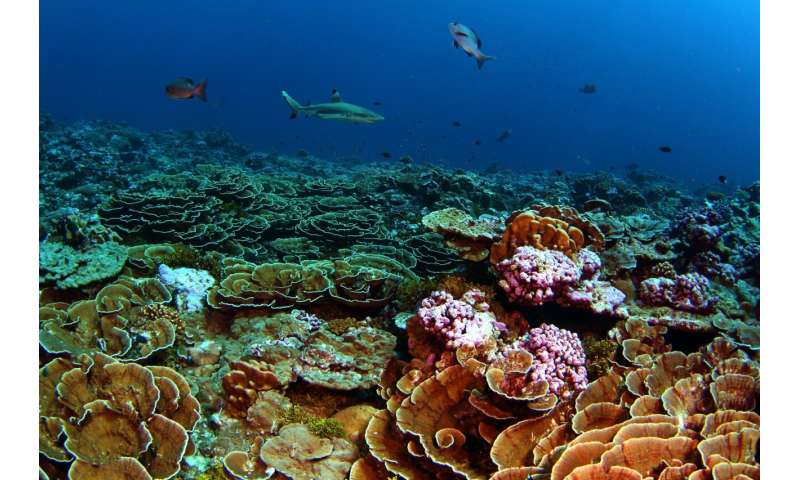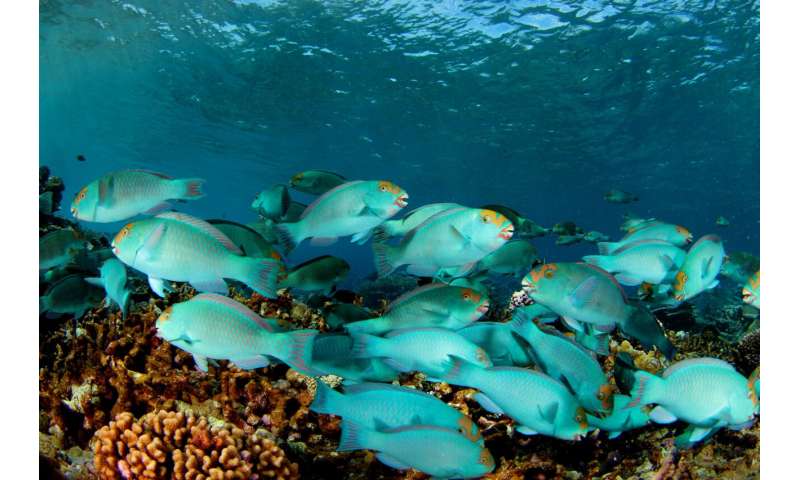This article has been reviewed according to Science X's editorial process and policies. Editors have highlighted the following attributes while ensuring the content's credibility:
fact-checked
peer-reviewed publication
trusted source
proofread
Theories about the natural world may need to change to reflect human impact

New research, reported today in Nature Ecology & Evolution, has for the first time validated at scale, one of the theories that has underpinned ecology for over half a century. In doing so, the findings raise further questions about whether models should be revised to capture human impacts on natural systems.
Scientists working in the 50s and 60s developed theories to predict the ecological distribution of species. These theories could be applied across a broad range of environments and variables such as food supply or temperature and when tested on a small scale they were found to be accurate. Among the earliest examples of these theories is the coral reef zonation theory which explains how different types of fish or corals for example are found on coral reefs at different depths.
Modern computing capabilities have now made it possible to test these theories at a larger scale, to see whether they "hold water."
To validate the depth zonation model on coral reefs, scientists at Bangor University and the US Government National Oceanic and Atmospheric Administration (NOAA), led by Dr. Laura Richardson, of Bangor University, collected data from 5,525 surveys at 35 Pacific Ocean islands. Their work has revealed that the model is correct and can predict the distribution of different fish species according to depth, but only on uninhabited islands where there is no and has never been any local human interference.
-

Life on a deeper, darker reef, Palmyra Atoll. Credit: Brian Zgliczynski -

Herbivorous parrotfish feeding in the shallows on Palmyra Atoll. Credit: Brian Zgliczynski
At islands and reefs with human habitation the pattern was not as marked or predictable.
The findings therefore suggest that our old "models" of the natural world may no longer be valid in the face of mounting local human impacts.
As lead author, Dr. Laura Richardson of Bangor University's School of Ocean Sciences, suggests, "Science is cumulative, building on past work. Now that we have greater computing capabilities, we should be testing these widely accepted but spatially under-validated theories at scale. Moreover the intervening years have seen human impacts on the environment increase to such an extent that these models may no longer predict the ecological distribution patterns we see today."
"This leads to more questions, both about the usefulness of models which represented a world less impacted by human activity, and about how to quantify or model our impact on the natural environment."
"The results show that now is the time to consider whether and how to include human impacts into our understanding of the natural world today."
More information: Laura Richardson et al, Local human impacts disrupt depth-dependent zonation of tropical reef fish communities, Nature Ecology & Evolution (2023). DOI: 10.1038/s41559-023-02201-x
Journal information: Nature Ecology & Evolution
Provided by Bangor University


















